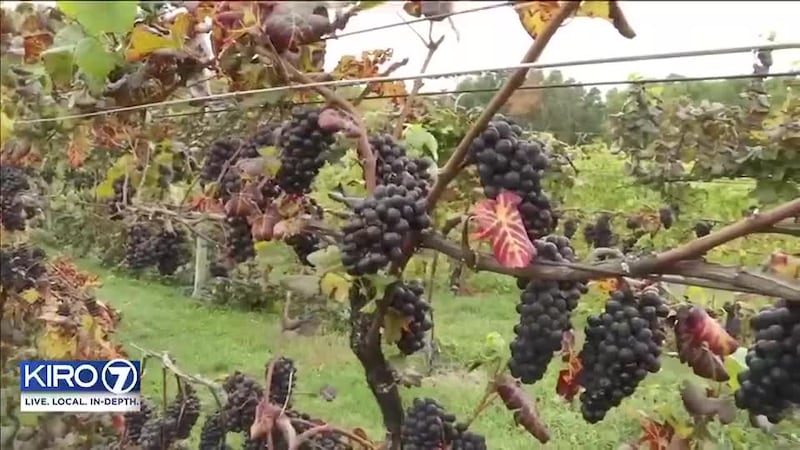Losing a crop to wildfires is something anyone in the agricultural industry fears. However, for one local winemaker and others in the wine industry, the real fear lies with losing a crop to a fire when it could be hundreds of miles away.
Researchers worldwide have been working tirelessly since at least 2003 to find a solution to protect vineyards from “smoke taint.” Smoke taint occurs after smoke is exposed to wine grapes for an extended period of time. The grapes absorb the harmful chemical compounds that ultimately alter the grapes’ taste and smell.
The U.S. Department of Agriculture funds a study for over $7.6 million across the West. This grant allows sixteen researchers from UC Davis, Oregon State University, and Washington State University to study this problem and provide winemakers with a feasible solution.
Brian Carter, the winemaker and owner of Brian Carter Cellars, has been in the Washington Wine Industry for years. With tasting rooms in Woodinville and Vancouver, Washington, Brian tells KIRO 7 he sources over 20 of his annual varieties from eleven vineyards across the Columbia and Yakima valleys. While he says he’s been lucky to have not had a devastating run-in with smoke taint, he tells us that in 2019, he did lose grapes from one of his eleven vineyards to a fire back in 2019.
“We knew ahead of time, and that’s the best scenario. In other words, the problem has been identified before you harvest the grapes, and that’s what’s advised for wineries to do,” said Carter.
According to the Washington State Wine Commission, Washington is the second-largest wine-producing state in the country. There are over 1,000 licensed wineries, and Washington wines generate $9.5 billion annually.
But with wildfire season just around the corner, researchers like Tom Collins, an associate professor at Washington State University’s Viticulture and Enology Department, say entering their third year in this four-year study has led to more questions than answers. “We’ve made some progress, but the further we get into it, the more we realize how extensive the issue can be,” said Collins.
While Tom and his colleague continue to work with air quality sensors in the field and compile a growing list of harmful compounds, we’re told some barrier sprays on the market are already used to protect grapes. However, the use of those barrier sprays is met with some hesitation.
“I’m not a huge fan of that technique. I would say the trouble is it’s hard to predict when the smoke will come,” adds Brian Carter.
Brian says many variables must be considered regarding risks and impacts. He also says that barrier sprays like bentonite or calen absorb the harmful smoke compounds; they do not deflect, which further adds to his concerns about how grapes could be affected.
While this study is ongoing across the West, Washington’s Department of Natural Resources tells KIRO 7 that while all signs point to a “normal” fire season this year, it’s tough to foresee what impacts wildfire smoke could have.
Tom Collins added that wildfire smoke “is not necessarily everywhere, even in a severe fire year. "
©2024 Cox Media Group








